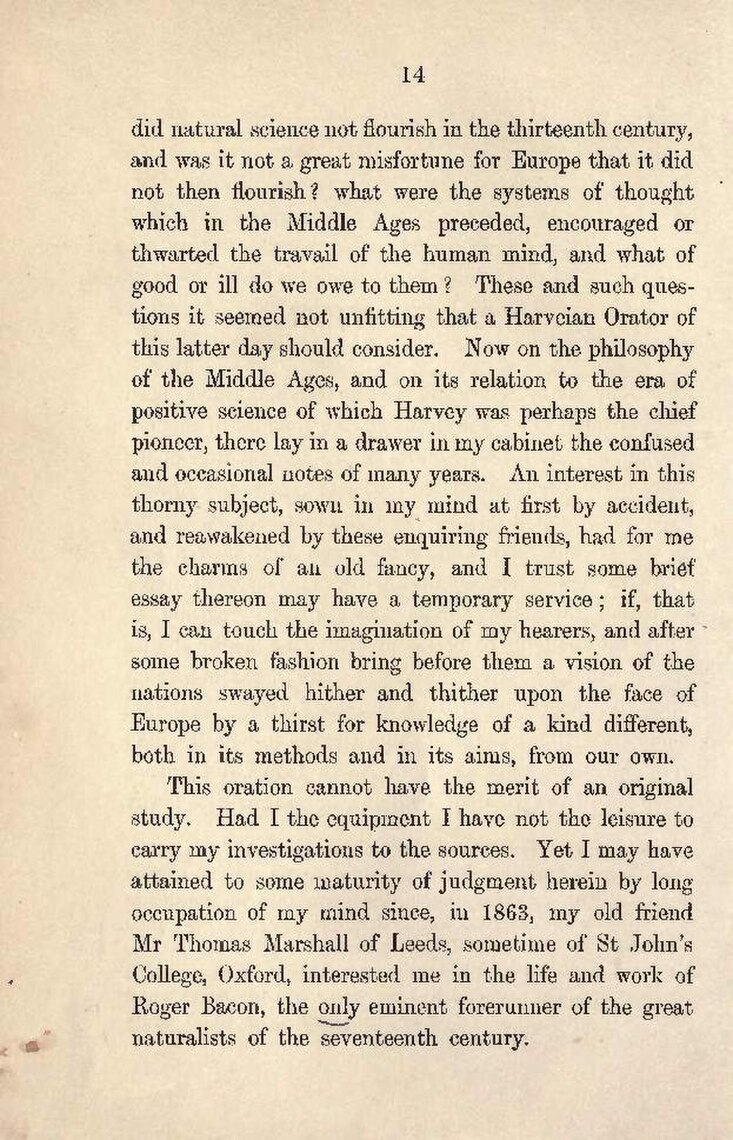did natural science not flourish in the thirteenth century, and was it not a great misfortune for Europe that it did not then flourish? what were the systems of thought which in the Middle Ages preceded, encouraged or thwarted the travail of the human mind, and what of good or ill do we owe to them? These and such ques- tions it seemed not unfitting that a Harveian Orator of this latter day should consider. Now on the philosophy of the Middle Ages, and on its relation to the era of positive science of which Harvey was perhaps the chief pioneer, there lay in a drawer in my cabinet the confused and occasional notes of many years. An interest in this thorny subject, sown in my mind at first by accident, and reawakened by these enquiring friends, had for me the charms of an old fancy, and I trust some brief essay thereon may have a temporary service; if, that is, I can touch the imagination of my hearers, and after some broken fashion bring before them a vision of the nations swayed hither and thither upon the face of Europe by a thirst for knowledge of a kind different, both in its methods and in its aims, from our own.
This oration cannot have the merit of an original study. Had I the equipment I have not the leisure to carry my investigations to the sources. Yet I may have attained to some maturity of judgment herein by long occupation of my mind since, in 1863, my old friend Mr Thomas Marshall of Leeds, sometime of St John's College, Oxford, interested me in the life and work of Roger Bacon, the only eminent forerunner of the great naturalists of the seventeenth century.
